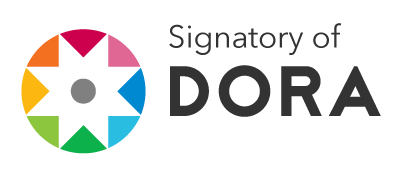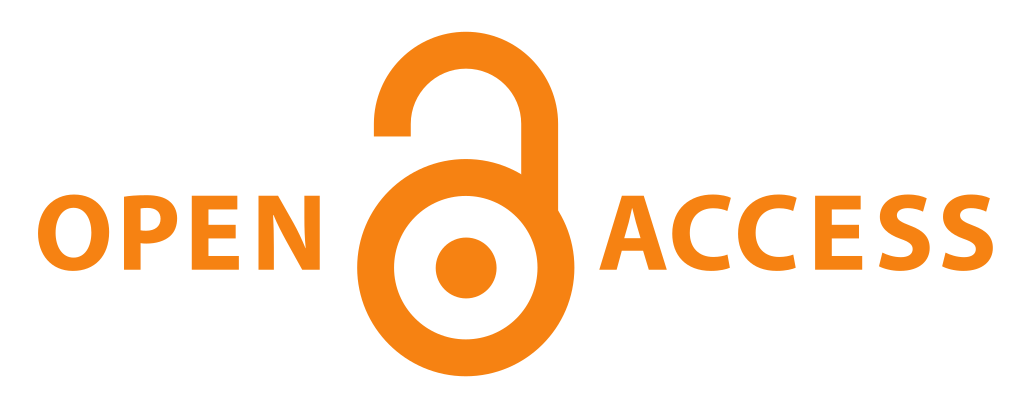Methodology for the evaluation of a university educational project for sustainable development
Keywords:
Bennett's hierarchy, targeting outcome of programs, learning performance indicators, instruments for measuring educational resultsAbstract
Uncertainty about how educational interventions contribute to their community of influence reduces the possibilities of optimizing resources for the adoption of sustainable practices. Aiming to develop a methodology to evaluate the results of Cátedra de la Tierra “Dr. Gonzalo Cruz Calderón”, performance indicators were defined and instruments were built to measure the state of knowledge, attitudes, skills and practices in 234 students prior to their participation in the project. An adequate content validity, construct validity and internal consistency was obtained. There is low performance in terms of knowledge, skills and sustainable practices, as well as high performance in attitudes, demonstrating the need to prioritize conceptual and procedural learning, specifically with regard to promoting the understanding of sustainability from an integrative approach and in the development of skills in biodiversity management, adaptation to climate change and watershed management.
References
Bennett, C. (1975). Up the hierarchy. Journal of Extension, 13(2), 7-12. Recuperado de https://www.joe.org/joe/1975march/1975-2-a1.pdf
Brundtland, G. H. (1987). Informe de la Comisión Mundial sobre Medio Ambiente y el Desarrollo: Nuestro futuro común. Documentos de las Naciones Unidas, 416.
Carmona, F. (2014). Un ejemplo de ACP paso a paso. Apuntes, Departamento de estadística. Universidad de Barcelona. [sitio web]. Recuperado de http://www.ub.edu/stat/docencia/Mates/ejemploACP.pdf
Cortese, A. (2003). The critical role of higher education in creating a sustainable future. Planning for higher education, 31(3), 15-22 Doi:10.1.1.739.3611
Dale, A., y Newman, L. (2005). Sustainable development, education and literacy. International Journal of Sustainability in Higher Education, 6(4), 351 – 362. doi:10.1108/14676370510623847
Eagan, P., Cook, T., y Joeres, E. (2002). Teaching the importance of culture and interdisciplinary education for sustainable development. International Journal of Sustainability in Higher Education, 3(1), 48–66. doi:10.1108/14676370210414173
Hernández, R; Fernández, C; Baptista, P. (1991). Metodología de la Investigación. México, D.F.: McGraw Hill.
Howe, C. (2009). The role of education as a tool for environmental conservation and sustainable development (Tesis doctoral, Imperial College London). Recuperada de https://www.iccs.org.uk/wp-content/thesis/phd-howe,caroline09.pdf
Kudryavtsev, A., Krasny, M., y Stedman, R. (2012). The impact of environmental education on sense of place among urban youth. Ecosphere, 3(4), 1-15. doi:10.1890/es11-00318.1
Lukman, R., y Glavič, P. (2007). What are the key elements of a Sustainable university? Clean Technologies and Environmental Policy, 9(2), 103-114. doi:10.1007/s10098-006-0070-7
Melendro, M., Novo, M., Murga, Á., y Bautista, M. (2009). Educación ambiental y universidad en la sociedad de la globalización. Utopía y Praxis Latinoamericana, 14(44), 137-142. Recuperado de https://www.redalyc.org/articulo.oa?id=27911649013
Mora, W. (2007). Respuesta de la universidad a los problemas socio ambientales: la ambientalización del currículo en la educación superior. Revista Investigación en la Escuela, 63, 65-76. Recuperado de https://revistascientificas.us.es/index.php/IE/article/view/7181
Muñoz, R. (2018). Un análisis crítico al marco conceptual del desarrollo sostenible y sus herramientas de medición. Revista En-contexto, 6(8), 171-184. Recuperado de https://ojs.tdea.edu.co/index.php/encontexto/article/view/485
Nieto, L., y Medellín, P. (2007). Medio ambiente y educación superior: implicaciones en las políticas públicas. Revista de la educación superior, 36(142), 31-42. Recuperado de http://www.scielo.org.mx/scielo.php?script=sci_arttext&pid=S0185-27602007000200002
Organización de las Naciones Unidas. (2015). Transformar nuestro mundo: la Agenda 2030 para el Desarrollo Sostenible. Nueva York: Naciones Unidas. Septuagésimo período de sesiones (Documento: A/RES/70/1). Recuperado de https://unctad.org/meetings/es/SessionalDocuments/ares70d1_es.pdf
Radhakrishna, R., y Bowen, C. (2010). Viewing Bennett’s hierarchy from a different lens: Implications for Extension program evaluation. Journal of Extension, 48(6), 1-5. Recuperado de https://joe.org/joe/2010december/tt1.php
Radhakrishna, R., y Relado, R. (2009). A framework to link evaluation questions to program outcomes. Journal of Extension, 47(3), 7. Recuperado de https://www.joe.org/joe/2009june/tt2.php
Ramos, M., y Tilbury, D. (2006). Educación para el desarrollo sostenible ¿nada nuevo bajo el sol? Consideraciones sobre cultura y sostenibilidad. Revista Iberoamericana de Educación, 40(1), 99-109. Recuperado de https://rieoei.org/RIE/article/view/784
Rockwell, K., y Bennett, C. 2004. Targeting outcomes of programs: a hierarchy for targeting outcomes and evaluating their achievement. Faculty Publications: Agricultural Leadership, Education & Communication Department. Paper 48. University of Nebraska – Lincoln. Recuperado de https://digitalcommons.unl.edu/cgi/viewcontent.cgi?article=1047&context=aglecfacpub
Rodríguez, N. (2011). Diseños experimentales en educación. Revista de Pedagogía, 32(91), 147-158. Recuperado de https://www.redalyc.org/pdf/659/65926549009.pdf
Rogers, P (2000). Causal models in program theory evaluation. New directions for evaluation, 2000(87), 47-55. doi:10.1002/ev.1181
Secadas, C. (1995). Escala para la evaluación de las actitudes pro-ambientales (EAPA) de alumnos universitarios. Revista complutense de Educación, 6(2), 253. Recuperado de https://dialnet.unirioja.es/servlet/articulo?codigo=150169
Summers, M., Childs, A., y Corney, G. (2005). Education for sustainable development in initial teacher training: issues for interdisciplinary collaboration. Environmental Education Research, 11(5), 623–647. doi:10.1080/13504620500169841
Taber, K. (2018). The use of Cronbach’s alpha when developing and reporting research instruments in science education. Research in Science Education, 48(6), 1273-1296. doi:10.1007/s11165-016-9602-2
Tilbury, D. (2010). Are we learning to change? mapping global progress in education for sustainable development in the lead up to ‘rio plus 20’. Global Environmental Research, 14(2010), 101-107.
Toribio, I., y Ordaz, F. (2018). Análisis estadístico del uso de técnicas didácticas en la enseñanza superior. Revista Espacios, 39 (46), 2-13. Recuperado de http://es.revistaespacios.com/a18v39n46/a18v39n46p02.pdf
Universidad Pedagógica Nacional “Francisco Morazán”. (2018). Manual de procedimientos Cátedra de la Tierra “Dr. Gonzalo Cruz Calderón”. Tegucigalpa, MDC: Sistema Editorial Universitario.
Universidad Pedagógica Nacional “Francisco Morazán”. (2018). Reglamento Cátedra de la Tierra “Dr. Gonzalo Cruz Calderón”. Tegucigalpa, MDC: Sistema Editorial Universitario.
Urrutia, M., Barrios, S., Gutiérrez, M., y Mayorga, M. (2014). Métodos óptimos para determinar validez de contenido. Educación Médica Superior, 28(3), 547-558. Recuperado de http://scielo.sld.cu/scielo.php?script=sci_arttext&pid=S0864-21412014000300014
Downloads
Published
How to Cite
Issue
Section
License

This work is licensed under a Creative Commons Attribution-NonCommercial-NoDerivatives 4.0 International License.








